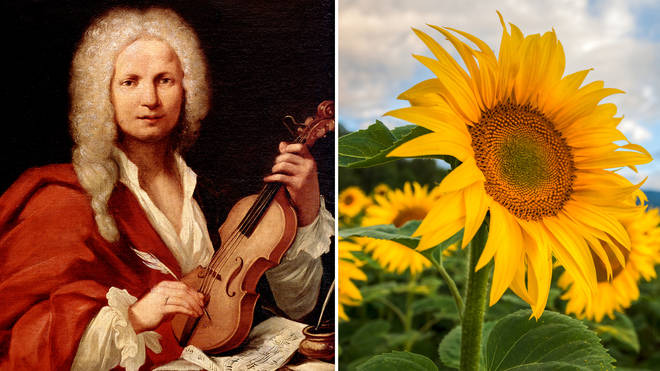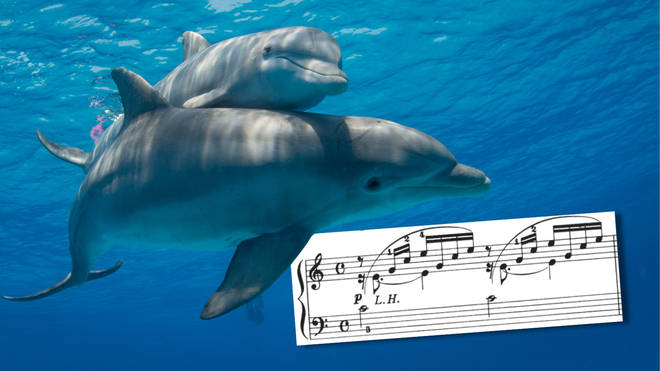It's all about the classical music composers and their works from the last 400 years and much more about music. Hier erfahren Sie alles über die klassischen Komponisten und ihre Meisterwerke der letzten vierhundert Jahre und vieles mehr über Klassische Musik.
Tuesday, July 26, 2022
Martin Böttcher - his music and his life
Monday, July 25, 2022
Großbritannien richtet 2023 für die Ukraine den ESC aus
Quelle: Luca Bruno/AP/dpa
Die Ukraine wird den ESC 2023 nicht ausrichten – die Sicherheitsbedenken sind wegen des Kriegs zu groß. Das zweitplatzierte Großbritannien wird einspringen. Dennoch ist man dort traurig, dass der ESC wegen des „andauernden russischen Blutvergießens“ nicht in der Ukraine stattfinden könne.
Das zweitplatzierte Großbritannien wird im kommenden Jahr anstelle des diesjährigen ESC-Siegers Ukraine, den Eurovision Song Contest ausrichten. „Nach der Anfrage der European Broadcasting Union und der ukrainischen Behörden freue ich mich, dass die BBC zugesagt hat, den Wettbewerb im nächsten Jahr auszurichten“, sagte die britische Kulturministerin Nadine Dorries am Montag. Allerdings sei es traurig, dass der ESC aufgrund des „andauernden russischen Blutvergießens“ nicht in der Ukraine stattfinden könne, dort wo er eigentlich hingehöre.
Mitte Mai hat die ukrainische Gruppe Kalush Orchestra mit dem Lied „Stefania“ in Turin den 66. ESC gewonnen. Damit hatten die Ukrainer zum dritten Mal das Recht auf die Austragung der TV-Musikshow im kommenden Jahr erlangt, schon 2005 und 2017 waren sie Gastgeber gewesen.
Doch wegen Sicherheitsbedenken im Zusammenhang mit dem seit rund fünf Monaten andauernden russischen Krieg gegen die Ukraine teilte die Europäische Rundfunkunion (EBU) mit, Gespräche mit der BBC in Großbritannien über die Austragung zu führen. Der Brite Sam Ryder hatte in Turin den zweiten Platz belegt. Unklar ist bisher, in welcher Stadt der Wettbewerb ausgetragen wird. Manchester und Glasgow haben Interesse signalisiert, wie die BBC berichtete.
Der britische Premierminister Boris Johnson hatte sich vor einem Monat für eine Austragung des nächsten Eurovision Song Contest in der Ukraine ausgesprochen. „Tatsache ist, dass sie ihn gewonnen haben, und sie verdienen es, ihn zu haben“, sagte Johnson damals.
Sunday, July 24, 2022
'The Phantom of The Opera' Sarah Brightman & Antonio Banderas
Saturday, July 23, 2022
Cavatina from the Deer Hunter
Friday, July 22, 2022
Thursday, July 21, 2022
15 glorious pieces of classical music for summertime

By Maddy Shaw Roberts, ClassicFM
Let these brilliant summer melodies take you on a musical journey from the fervent height of summer, to the tranquil sunset at day’s end.
Keep cool and ring in the sun-drenched months ahead with these chilled classical melodies, courtesy of Vivaldi, Albéniz, Gershwin and more.
Marquez – Conga del Fuego
This fantastically energetic work is a frantic, joyous dance – impossibly catchy in its rhythms, a new classical favourite of the last ten years or so and an immediate reminder of the euphoria of summer.
Delius – On Hearing the First Cuckoo in Spring
Based on a melody from an old Norwegian folk song ‘In Ola Valley’, this beautiful tone poem is among English composer Delius’ most beloved pieces. Listen out as instruments of the orchestra imitate the natural sounds of the cuckoo – from the strings to the woodwind.
Tereso Carreño – Mi Teresita (Little Waltz)
Here’s a delightful ditty for solo piano, written by 19th-century Venezuelan concert pianist and composer Teresa Carreño for her daughter, Teresita. At her concerts, Carreño often played this charming piece as an encore.
Gershwin – Summertime
It started as an opera aria from Porgy and Bess, and then became a reggae hit, and finally a jazz staple. Gershwin’s sultry writing with a hint of melancholy has lent itself to every genre imaginable, making ‘Summertime’ the most covered song in the world.
Respighi – The Pines of Rome
Glimmering with anticipation from the offset, this delightful orchestral tone poem opens with a musical painting of children playing in the pine groves and closes with trumpet fanfares to depict a marching band.
Beethoven – Romance No. 2 in F major
Warmth practically radiates out of this Romantic violin work – sublime, and yet somewhat sad in its innocence and sweetness, as we remember that Beethoven composed the piece while coming to terms with the tragedy of his deafness, probably for the first time.
Debussy – Prélude à l’après-midi d’un faune
This delightful symphonic poem tells the tale of the mythical faun who, enchanted by the woods’ nymphs and naiads, drifts off to sleep. Don’t be surprised if Debussy’s famous chromatic opening flute solo and shimmering harp lines send you off into your own slumber, as they emulate the languorous heat of a summer afternoon.
Rodrigo – Concierto de Aranjuez
Journey to Spain’s sweltering capital with this beautiful classical guitar concerto, filled to the brim with swelling melodies and melancholic emotion, all while bringing to life the aristocratic essence of an 18th-century court.
Mendelssohn – A Midsummer Night’s Dream
Within Shakespeare’s tranquil yet playful setting, Mendelssohn places a sweeping Intermezzo, enchanting Nocturne and a rather impish Scherzo. This music is an exquisite listen during the warmer months.
Camille Pépin – Apaisé, boisé
Rising star French composer Camille Pépin’s gently pulsating work for orchestra induces a state of dreamlike musical bliss. It practically sings of summer and new growth, as the woodwind, brass and strings each take it in turns to pierce the earth and find sunlight.
Glazunov – The Seasons
Glazunov’s ballet The Seasons creates four tableaux based on the changing seasons, and ‘Summer’ speaks to a delightfully rural scene. As water is brought to refresh the flowers, which have been basking in the warmth of the sun, the Spirit of the Corn dances in thanksgiving. Is that the picture of summer, or what?
William Grant Still – Summerland
A gentler choice now, this heavenly work by William Grant Still – the first African American composer to conduct a major US symphony orchestra – is the second movement in a three-part solo piano suite, which tells the story of a human soul’s journey after death. If the life has been a good one, the soul may enter ‘Summerland’.
Richter – On the Nature of Daylight
Modern composer Max Richter’s deeply beautiful, reflective ‘On the Nature of Daylight’ has lent perfectly to cinematic use. A calming, contemplative work for gentle reflection, as the sun sets on the day.
Listen here to Classical Summertime, our live playlist on Global Player.
Dolphins behave better after listening to Bach and Beethoven, study finds
By Sophia Alexandra Hall, ClassicFM
@sophiassocialsBeethoven’s ‘Almost a Fantasy’ and ‘The Swan’ by Saint-Saëns are just some of the pieces of classical music enjoyed by Italian dolphins involved in this latest scientific study.
Most scientists agree that dolphins are very intelligent creatures. The species have demonstrated in multiple studies that they are quick learners, empathetic, self-aware, and great at problem solving.
But a recent study published in the journal Applied Animal Behaviour Science has now proved that dolphins are also music lovers, and that classical music specifically could improve social behaviours of the aquatic animals.
Researchers at the University of Padua in Italy found that playing classical music resulted in the dolphins showing more interest in each other, giving more gentle touches and swimming in synchrony for longer.
Eight dolphins in the eastern beach-front city of Riccione, Italy, were played 20 minutes of classical music a day via an underwater speaker for seven sessions. The aquatic mammals heard a number of pieces of classical music including Bach’s Prelude BWV 846, Grieg’s ‘Morning Mood’ from Peer Gynt, Debussy’s Reflets dans l’eau, Beethoven’s Almost a Fantasy, and ‘The Swan’ from The Carnival of the Animals by Saint-Saëns.

On other days, the dolphins were played the sound of rainfall for 20 minutes (auditory stimulus), given floating toys to play with for 20 minutes (an already known form of enrichment for the animals), or shown natural environments on television screens for 20 minutes (visual stimulus).
The group of dolphins was made up of five female and three male dolphins between the ages of five and 49 years old. Three of these dolphins, which are housed at a dolphinarium in Riccione, were born in the wild.
The researchers found that only the music had a long-lasting positive effect on the dolphins’ behaviour. As only classical music was used, the researchers admitted the results may not be specific to just the classical genre, but that classical music could be particularly useful when improving social behaviours in dolphins.
The use of music was also a particularly useful tool for when the animals were under stress or in situations that could lead to increased conflicts.
Lead researcher Dr Cécile Guérineau said the way the dolphins acted, suggested they were showing happiness.
“This system is linked to reward, social motivation, pleasure and pain perception,” explained Dr Guérineau. “Activation of opioids receptors is correlated with a feeling of euphoria. [And] we know that in a wide range of animals – from mammals, monkeys, dogs, rats etc, to non-mammals, birds – endorphins, i.e. one type of endogenous opioids, are related to social bonding.
“Dolphins may also be able to perceive rhythm because they are a vocal-learning species. It may be that, similar to how dancing at a party makes us feel good and helps people to bond, when dolphins synchronize to a beat, they also feel good and connect with their fellow swimmers.”






